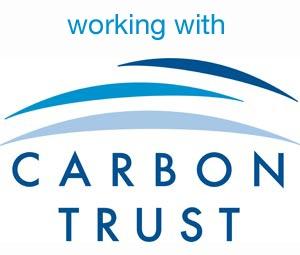If you’re involved in property development, renovation, or ownership in London, you’ve likely encountered the term “SAP Calculation.” Understanding SAP calculations is essential for ensuring that your property meets energy efficiency standards and complies with UK building regulations. In this blog, we’ll break down the basics of SAP calculations, why they’re important for London properties, and how they can benefit you as a homeowner or developer.
What Is a SAP Calculation?
SAP stands for Standard Assessment Procedure, which is the method used by the UK government to assess and compare the energy performance of residential buildings. Essentially, a SAP calculation measures how energy-efficient a property is and how much it costs to heat and power it. The calculation results in a score on a scale from 1 to 100+, with higher scores indicating better energy efficiency.
A SAP score is crucial because it directly influences the Energy Performance Certificate (EPC) rating of a property, which is required when selling or renting a home. For new builds, conversions, and some extensions in London, a SAP calculation is mandatory to demonstrate compliance with Part L of the Building Regulations.
Why Are SAP Calculations Important for London Properties?
1. Compliance with Building Regulations
In the UK, new residential buildings, major renovations, and certain extensions must comply with Part L of the Building Regulations, which focuses on the conservation of fuel and power. A SAP calculation is required to show that a property meets these regulations. Without it, you cannot obtain the necessary approvals from building control, which could delay your project or even result in legal issues.
For London properties, where energy efficiency is increasingly prioritised, ensuring compliance through SAP calculations is not just about meeting legal requirements—it’s about future-proofing your investment.
2. Energy Efficiency and Sustainability
London has ambitious targets for reducing carbon emissions and improving energy efficiency across the city. SAP calculations help ensure that new homes are built to high energy efficiency standards, contributing to these goals. The calculation assesses various factors, including the insulation of the building envelope, heating and hot water systems, ventilation, and the type of fuel used.
By optimising these elements, developers and homeowners can create properties that are not only compliant with regulations but also more sustainable and cost-effective in the long term.
3. Impact on Property Value
As energy efficiency becomes a higher priority for homebuyers and renters, properties with good SAP scores are likely to be more attractive on the market. In London, where property values are already high, a home with a strong energy efficiency rating can stand out, potentially commanding a higher price or rent.
Conversely, properties with poor SAP scores may struggle to compete, as they are likely to incur higher running costs for the occupants. Ensuring your property has a good SAP score is a smart move for maintaining and enhancing its market value.
4. Cost Savings for Homeowners
One of the key benefits of a SAP calculation is the potential for long-term cost savings. The recommendations provided in a SAP report can guide you on how to make your home more energy-efficient, leading to lower energy bills. This is particularly important in London, where energy costs can be substantial.
Simple improvements such as upgrading insulation, installing energy-efficient windows, or choosing a more efficient heating system can significantly reduce your property’s energy consumption, translating into real savings over time.
5. Contributing to London’s Environmental Goals
London is committed to becoming a zero-carbon city by 2050, and improving the energy efficiency of buildings is a critical part of this strategy. By adhering to the recommendations from a SAP calculation, you can reduce your property’s carbon footprint, contributing to the city’s broader environmental goals.
This not only benefits the environment but also enhances your property’s sustainability credentials, which is increasingly important to eco-conscious buyers and tenants.
How Is a SAP Calculation Conducted?
A SAP calculation is typically carried out by a qualified energy assessor who gathers detailed information about the property. The assessor will consider various factors, including:
- Building Fabric: The insulation levels in the walls, roof, and floors, as well as the type of glazing used in windows.
- Heating Systems: The type of heating system (e.g., boiler, heat pump), its efficiency, and how the hot water is provided.
- Ventilation: The type of ventilation system and its efficiency.
- Lighting: The efficiency of the lighting systems used in the property.
- Renewable Energy: Any renewable energy technologies installed, such as solar panels or wind turbines.
Using this data, the assessor calculates the energy performance of the property, resulting in a SAP score. This score is then used to produce an Energy Performance Certificate (EPC), which is required for legal compliance and market transactions.
When Is a SAP Calculation Required?
A SAP calculation is required in several scenarios, including:
- New Builds: Any new residential property in London must undergo a SAP calculation to ensure it meets the energy efficiency requirements set out in Part L of the Building Regulations.
- Conversions: If you’re converting a property into a new dwelling, such as turning a house into flats, a SAP calculation is necessary.
- Significant Renovations: Major renovations that affect the energy performance of a building, such as extensive extensions or the replacement of key systems like heating or windows, may require a SAP calculation.
Even for projects that don’t legally require a SAP calculation, conducting one can still provide valuable insights into the energy efficiency of your home and guide you on how to make improvements.
Conclusion
SAP calculations are a vital part of the property development and renovation process in London. They ensure compliance with building regulations, enhance energy efficiency, contribute to sustainability goals, and can significantly impact property value. For homeowners and developers alike, understanding the basics of SAP calculations is essential for making informed decisions that benefit both the environment and the bottom line.
If you’re planning a new build, renovation, or conversion in London, it’s crucial to engage with a qualified SAP assessor early in the process. This will help ensure that your project not only meets all necessary regulations but also achieves the best possible energy efficiency rating, providing long-term benefits for both you and the environment.












